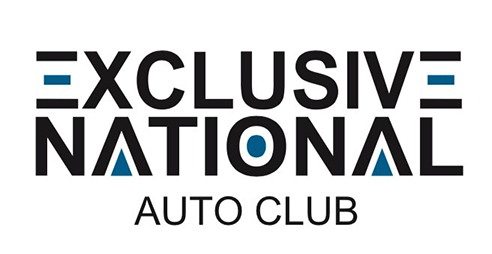Extended Car Warranties: What They Don’t Tell You About Coverage
Extended car warranties are a popular option for car owners who want to protect their investments and avoid unexpected repair costs. These warranties offer coverage beyond the manufacturer’s warranty, providing peace of mind and financial security. However, it’s important to understand the coverage and limitations of these warranties before making a purchase.
There are many misconceptions about extended warranties, including the belief that they cover everything. In reality, there are often exclusions and limitations that can leave car owners with unexpected repair bills. For example, some warranties may not cover wear and tear items like brakes and tires or may exclude certain parts like the transmission or engine.
It’s important to read the fine print and understand exactly what is and isn’t covered by an extended warranty. This can help car owners avoid surprises and make informed decisions about their coverage options.
The Fine Print: Understanding the Limitations of Extended Car Warranties
In addition to exclusions and limitations, extended warranties often have specific requirements that must be met for coverage to apply. For example, some warranties may require regular maintenance to be performed at specific intervals, or may only cover repairs performed by authorized dealerships.
It’s crucial to read and understand the contract before purchasing an extended warranty. This can help car owners avoid situations where they think they’re covered, only to find out that they’re not due to a technicality.
What’s Covered and What’s Not: A Comprehensive Guide to Extended Car Warranty Coverage
Extended warranties can vary widely in terms of what they cover. Some may offer comprehensive coverage that includes everything from the engine to the electronics, while others may only cover specific components like the transmission or air conditioning.
It’s important to understand the coverage options available and choose a warranty that meets your specific needs. This can help ensure that you’re protected in the event of a breakdown or repair.
The Cost of Peace of Mind: Weighing the Pros and Cons of Extended Car Warranties
Extended warranties can provide peace of mind and financial security, but they also come with a cost. The price of an extended warranty can vary depending on the coverage options selected and the provider chosen.
When deciding whether to purchase an extended warranty, it’s important to weigh the potential benefits against the cost. Factors to consider may include the age and condition of the vehicle, the likelihood of repairs, and the owner’s financial situation.
The Role of Maintenance: How Neglecting Your Car Could Void Your Extended Warranty
Regular maintenance is crucial for keeping a car running smoothly and avoiding breakdowns. However, it’s also important for maintaining warranty coverage. Neglecting maintenance can void a warranty, leaving car owners with unexpected repair bills.
To ensure warranty coverage, car owners should follow the manufacturer’s recommended maintenance schedule and keep detailed records of all maintenance performed.
The Importance of Choosing the Right Provider: Tips for Finding a Reputable Extended Car Warranty Company
Choosing the right warranty provider is crucial for ensuring that you’re protected in the event of a breakdown or repair. When selecting a provider, it’s important to consider factors like reputation, customer service, and coverage options.
Red flags to watch out for when selecting a provider may include high-pressure sales tactics, vague or misleading information, and a lack of transparency about coverage and limitations.
The Claims Process: Navigating the Ins and Outs of Filing a Warranty Claim
Filing a warranty claim can be a complex process, with many steps and requirements to follow. To ensure a smooth claims process, car owners should familiarize themselves with the requirements and procedures outlined in their warranty contracts.
Common pitfalls to avoid during the claims process may include failing to provide required documentation, using unauthorized repair shops, and failing to follow the proper procedures for filing a claim.
The Risks of Third-Party Warranties: Why You Should Be Cautious
Third-party warranties are often marketed as a cheaper alternative to manufacturer-backed warranties. However, these warranties can come with significant risks, including limited coverage, high deductibles, and the potential for scams and fraud.
To avoid these risks, car owners should carefully research any third-party warranty providers and read the contract thoroughly before making a purchase.
The Impact of Modifications: How Aftermarket Parts Could Affect Your Warranty Coverage
Modifications to a car can affect warranty coverage, as they may alter the performance or safety of the vehicle. Some modifications may void a warranty entirely, while others may only affect coverage for specific components.
Examples of modifications that may void a warranty include engine tuning, suspension modifications, and aftermarket exhaust systems. Car owners should consult their warranty contract and manufacturer guidelines before making any modifications to their vehicles.
The Future of Extended Car Warranties: Trends and Predictions for the Industry
The extended warranty industry is constantly evolving, with new providers and coverage options emerging all the time. Some trends in the industry include the rise of online warranty providers, the expansion of coverage options to include electric and hybrid vehicles, and the use of data analytics to improve pricing and coverage.
Predictions for the future of extended warranties include increased competition, more personalized coverage options, and the potential for new technologies like self-driving cars to change the landscape of the industry.
Extended car warranties can provide valuable protection and peace of mind for car owners. However, it’s important to understand the coverage and limitations of these warranties, as well as the potential risks and costs involved. By doing your research and choosing the right provider, you can ensure that you’re protected in the event of a breakdown or repair.
